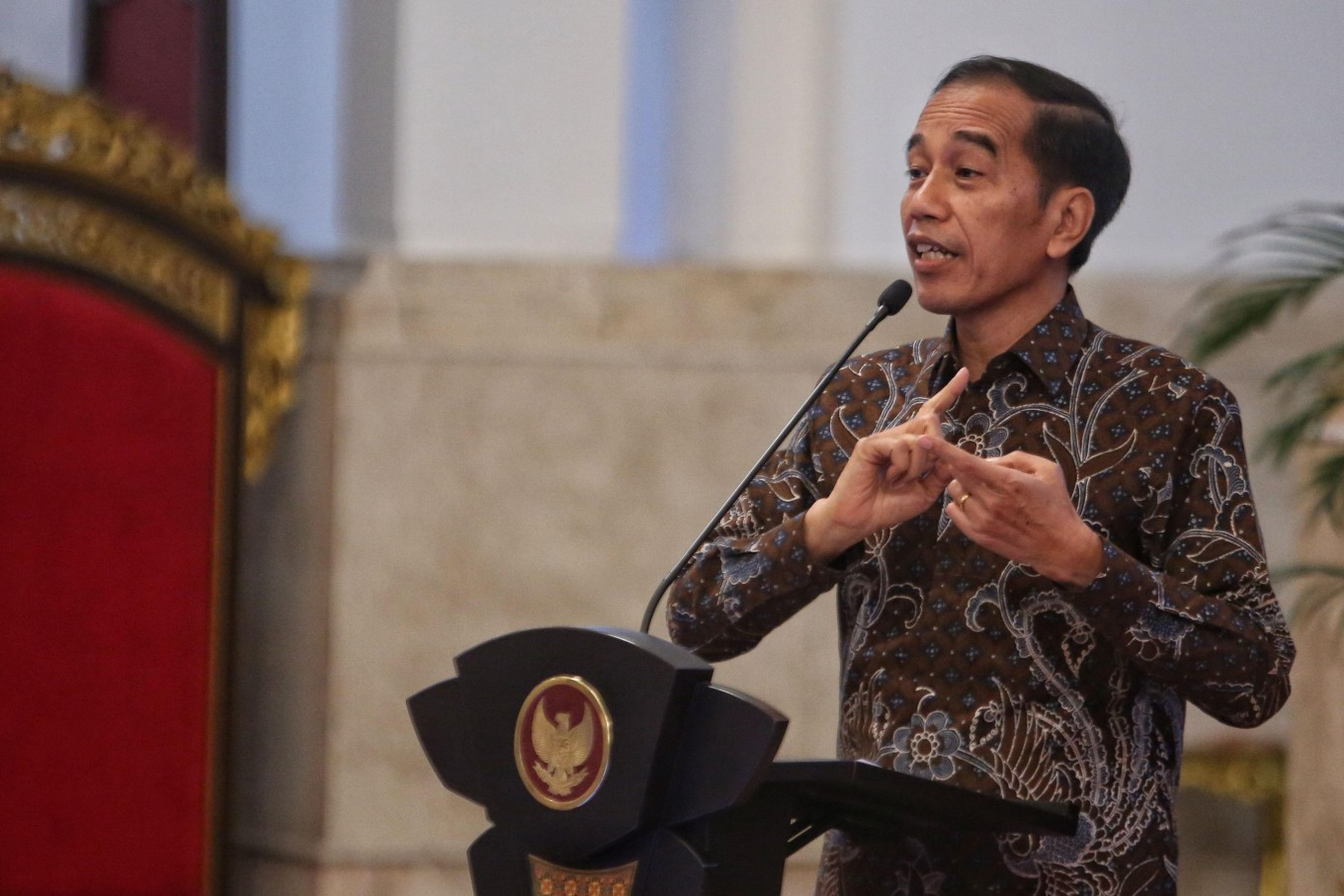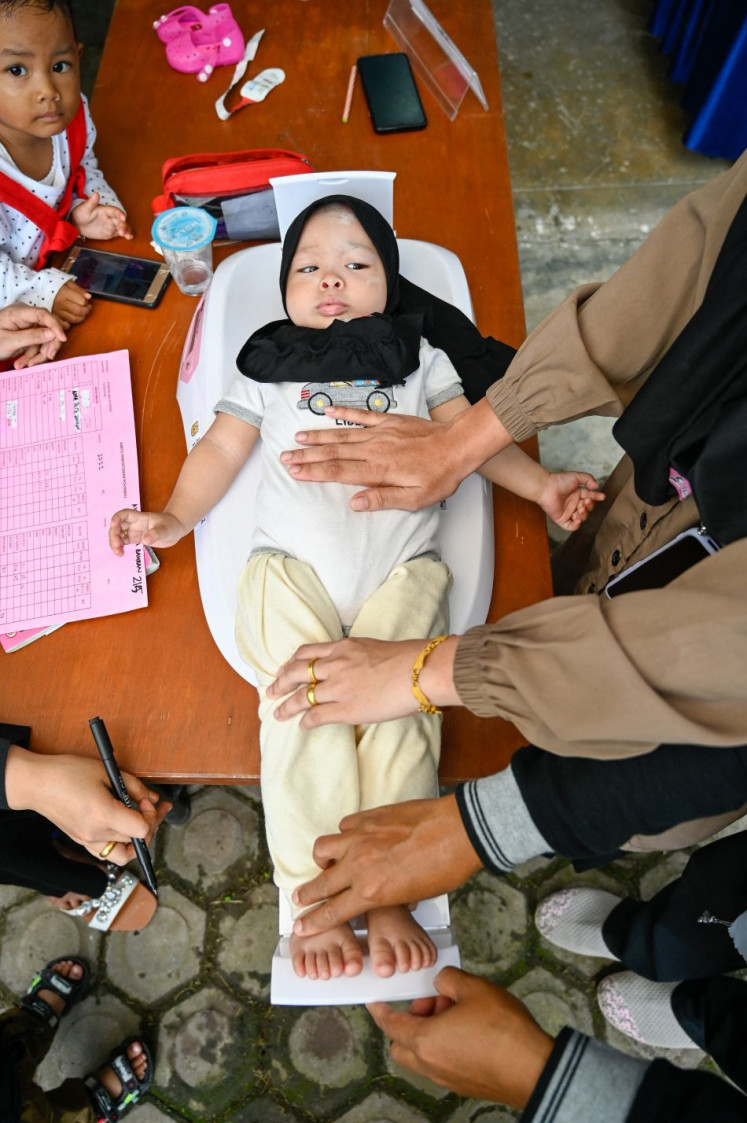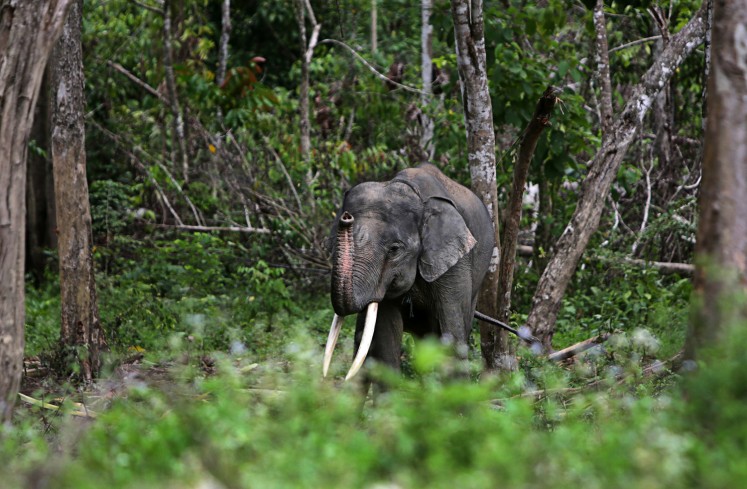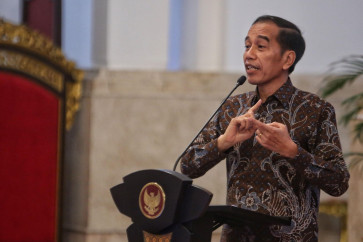Popular Reads
Top Results
Can't find what you're looking for?
View all search resultsPopular Reads
Top Results
Can't find what you're looking for?
View all search resultsAnalysis: Jokowi seeks to circumvent courts in resolving human rights violations
Change text size
Gift Premium Articles
to Anyone
 President Joko Widodo opens the National Development Planning Conference (Musrenbangnas) National Medium-Term Development Plan (RPJMN) 2020-2024 at the State Palace, Jakarta, Monday (16/12/2019). The President conveyed the things that the government will do in the next five years, namely the development of human resources, infrastructure development, simplification of regulations, simplification of bureaucracy and economic transformation. (JP/Seto Wardhana)
President Joko Widodo opens the National Development Planning Conference (Musrenbangnas) National Medium-Term Development Plan (RPJMN) 2020-2024 at the State Palace, Jakarta, Monday (16/12/2019). The President conveyed the things that the government will do in the next five years, namely the development of human resources, infrastructure development, simplification of regulations, simplification of bureaucracy and economic transformation. (JP/Seto Wardhana)
P
resident Joko “Jokowi” Widodo has set up a team to resolve past serious human rights violations without going through courts of law, prompting some civil society organizations to accuse the government of trying to absolve the perpetrators of any guilt.
In almost all the 13 cases of serious human rights violations most often cited, the hands of the Indonesian Military (TNI) are found everywhere, and this is one probable reason why these cases remain buried and have never reached the courts.
The oldest of these is the massacre of communists and their sympathizers in 1965-1966, led by the military but with widespread public support, including Islamic groups. Almost six decades later, there is still no admission from the government or the military about these state-sponsored killings, in which as many as 1 million died. Every attempt to uncover the truth has been consistently quashed.
The presidential office said the presidential decree to set up the team to find nonjudicial resolutions would help relieve the nation of these historical burdens. A spokesperson said the move did not necessarily preclude the possibility of bringing these cases to court.
The president has yet to announce the line-up of the team, but it will be led by veteran diplomat Makarim Wibisono. Tempo said an early draft of the decree had names of scholars and activists such as Ifdhal Kasim, Suparman Marzuki, Apolo Safano, Mustara Abubakar, Harkristuti Harkrisnowo, Asad Said, Kiki Syahnakri, Zainal Arifin Muchtar, Achmad Muzakki, Komaruddin Hidayat and Rahayu. Two other people had been proposed, but they declined to join the team, according to Tempo. They were Usman Hamid of Amnesty International Indonesia and historian Hermawan Sulistyo.
In 2019, shortly after his second inauguration, President Jokowi ordered the Law and Human Rights Ministry to draw up a bill on the creation of a truth and reconciliation commission. Now, with just a little more than two years before he steps down, the text of the bill has not even reached the House of Representatives for deliberation. The team appears to be an alternative as the president is bent on fulfilling a promise that he made in his first presidential campaign in 2014.
But human rights organizations are not impressed and see the presidential initiative as paving the way to closing these cases while giving impunity to the perpetrators. They urged the president to drop the plan and continue to pursue truth and justice in all the cases.

















